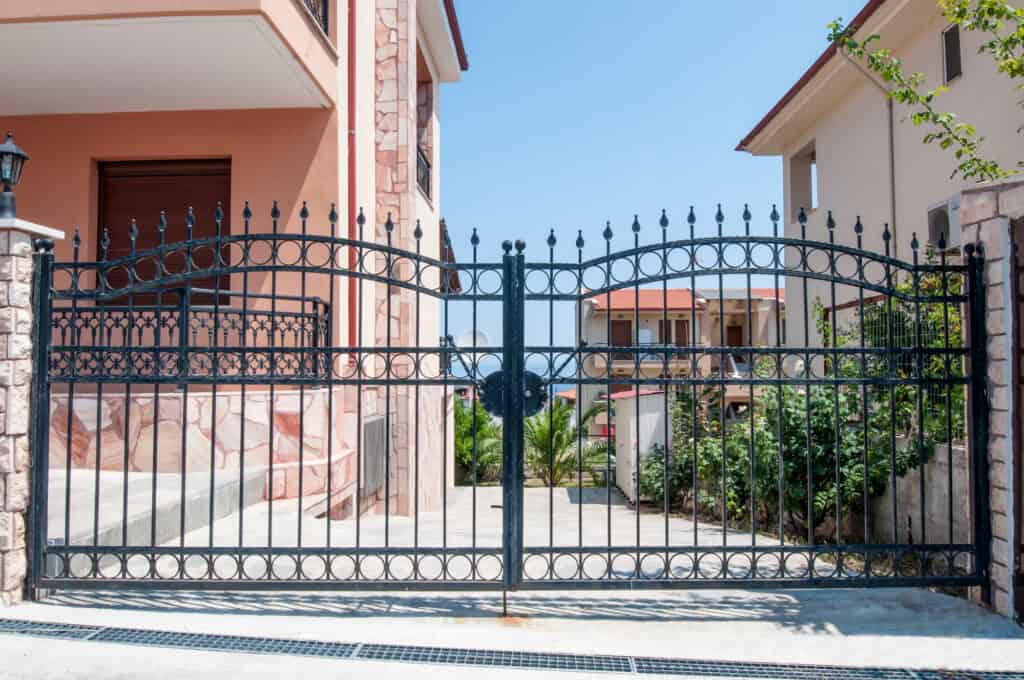[ad_1]
Automatic Gate Safety Features: How They Work and Why They’re Important
Automatic gates have become increasingly popular in the last few years. They provide numerous benefits, including convenience, security, and an increased value of your property. However, as with any piece of automated equipment, safety is of the utmost importance. Therefore, automatic gates come with a range of safety features to ensure that they are safe to operate.
In this article, we’ll explore the various safety features that come with automatic gates and why they’re so important.
Automatic Gate Safety Features
1. Safety Sensors
Safety sensors are the most common safety feature in automatic gates. These are devices that are installed in the gate’s opening and closing areas, and they’re designed to detect any obstruction in the gate’s path.
If the sensor detects an object in the gate’s path, the gate will stop moving immediately. This feature helps to prevent the gate from closing on any cars, people, or animals that might be in its path.
Sensors have become more advanced in recent years, and they come in different types. Some sensors use infrared lights to detect objects in the gate’s area, while others use ultrasound waves.
2. Smart Control
Smart controls use algorithms to monitor the gate’s movements and alert the operator if there are any potential safety issues. This feature is particularly useful for gates that are used frequently or in busy areas, such as commercial properties.
Smart controls can detect issues such as a motor malfunction or a gate that’s been left open for too long. If there’s a safety issue, the control will send an alert to the operator, who can then take the necessary action.
3. Battery Backup
Automatic gates rely on electricity to operate, but there may be situations where the power goes out. This can be dangerous if the gate is halfway through opening or closing when the power goes out.
Battery backup is a safety feature that ensures the gate can still be operated even if there’s no electricity. The battery backup kicks in immediately when the power goes out, allowing the gate to continue to operate.
4. Emergency Release
If there’s a power outage, the gate may have to be opened manually. In this instance, an emergency release button can be used to open the gate manually.
The emergency release button is typically located near the gate’s operator. When pressed, it disengages the motor, allowing the gate to be opened manually.
5. Alarm System
An alarm system is another safety feature that’s commonly installed in automatic gates. The alarm is triggered if there’s an attempt to force open the gate or if someone tries to enter the property without proper authorization.
The alarm system can be connected to a central monitoring station, which can alert the authorities if there’s an unauthorized entry.
Why Automatic Gate Safety Features Are Important
Automatic gates provide numerous benefits, but they can also be dangerous if not operated correctly. That’s why automatic gates come with a range of safety features designed to keep people safe.
Here are some of the reasons why automatic gate safety features are so important:
1. Prevent Accidents
Automatic gate safety features are designed to prevent accidents from occurring. Safety sensors, for example, can detect any obstacles in the gate’s path and stop the gate from closing on them. This feature can prevent serious injuries or even fatalities from occurring.
2. Protect Property
Automatic gates provide an additional level of security for your property. However, if the gate is not operated safely, it can become a liability. That’s why automatic gate safety features are so important. They protect your property by ensuring that the gate is operated safely and securely.
3. Comply with Regulations
There are certain regulations in place that require automatic gates to have specific safety features. For example, UL 325 is a standard that mandates minimum safety requirements for gate operators. By complying with these regulations, you can ensure that your gate is safe to operate and that you’re not liable for any accidents that may occur.
4. Reduce Liability
If an accident occurs due to an unsafe gate, you could be held liable. By installing automatic gate safety features, you reduce your liability and ensure that your gate is operated safely.
FAQs
1. Do all automatic gates have safety features?
Yes, all automatic gates are required to have safety features. These features are designed to prevent accidents from occurring.
2. What should I do if my gate’s safety features are not working properly?
If your gate’s safety features are not working properly, you should contact a professional gate installer. They can inspect your gate and make any necessary repairs to ensure that it’s safe to operate.
3. How often do I need to have my gates inspected?
You should have your gates inspected annually by a professional installer. This will ensure that your gate is operating safely and that all safety features are working properly.
4. Can I install safety features on an existing gate?
Yes, you can install safety features on an existing gate. A professional gate installer can assess your gate and recommend the appropriate safety features to install.
Conclusion
Automatic gates provide numerous benefits, but safety should always be a top priority. That’s why automatic gates come with a range of safety features designed to keep people safe.
These features include safety sensors, smart controls, battery backup, emergency releases, and alarm systems. By installing these features, you ensure that your gate is operated safely, reducing your liability and protecting your property.
If you’re unsure whether your automatic gate has all the necessary safety features, contact a professional gate installer. They can inspect your gate and recommend any necessary safety features to install.
[ad_2]


